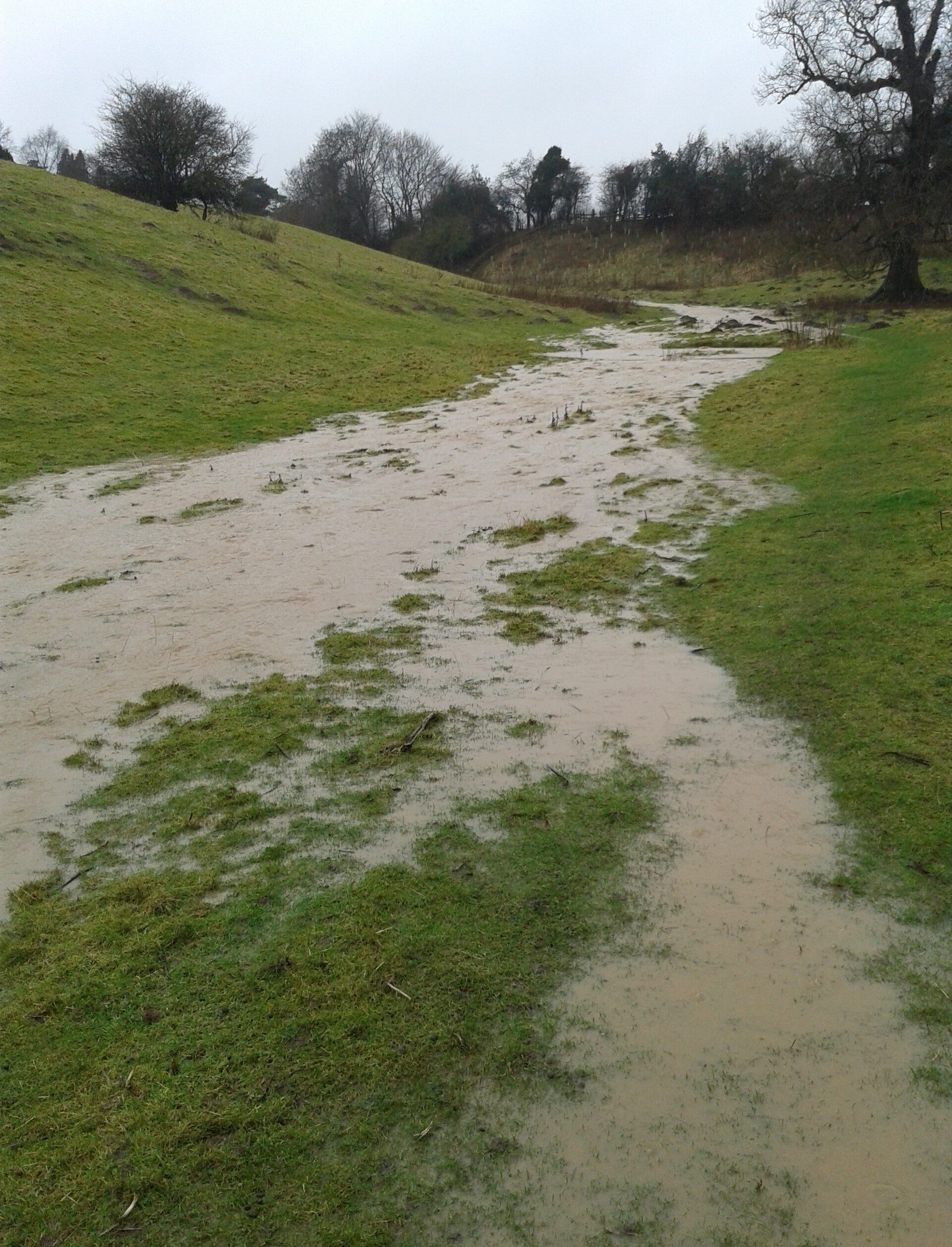


Yorkshire has a proud tradition of farming. The area supports a wide variety of agricultural types, with mainly arable production in the Vale of York, mixed farming, beef and sheep production in the lower dales, extensive hill sheep grazing on the uplands and, of course, the famous dairy industry of Wensleydale.
Management of land for agriculture can result in diffuse water pollution. Sediment entering the stream is a major problem. This occurs from livestock trampling river banks, from runoff from bare arable fields and from runoff from fields where livestock and machinery have compacted the soil and reduced infiltration. Sediment can smother eggs in fish spawning areas, reducing the quality of fisheries.
Nutrients, such as phosphate and nitrate, also run off agricultural land and into the river from manure and fertilisers. This can result in excessive algae growth and a reduction of oxygen available for other river life. Chemicals such as pesticides and sheep dip, and bacteria from livestock, are also harmful to aquatic life.
The quality of drinking water sources, both surface and groundwater can also be affected by these pollutants. Water treatment will not remove all pesticides – such as metaldehyde from slug pellets – to a sufficient degree, and it can lead to water treatment works being shut down. Soils in the upper parts of the catchments with high organic content, such as peat, can discolour the water. Water companies then have to treat this to make it suitable for domestic use, which increases the cost to the customer through higher water bills.
Although the number of pollution incidents from agriculture has declined markedly over the last ten years, pollution from rural areas remains a challenge in some catchments. Many rivers in our area are considered to be in ‘poor condition’. Agricultural pollutants are the reasons for this poor condition in 19% of cases in the Swale, Ure, Nidd and Upper Ouse catchments, and 6% in the Wharfe and Lower Ouse catchments.
Farmers are already doing much to help solve these problems. Many have entered Natural England’s Countryside Stewardship scheme and are paid a contribution for working their land in a way that benefits the environment. There are grants and advice available under this scheme for Catchment Sensitive Farming (CSF). CSF encourages farmers to take measures to reduce runoff from their land. This includes bankside fencing to exclude livestock, sediment traps and better separation of clean and dirty water. The industry-led ‘Campaign for the Farmed Environment’ has championed stewardship schemes to protect watercourses, especially in the Swale catchment.


